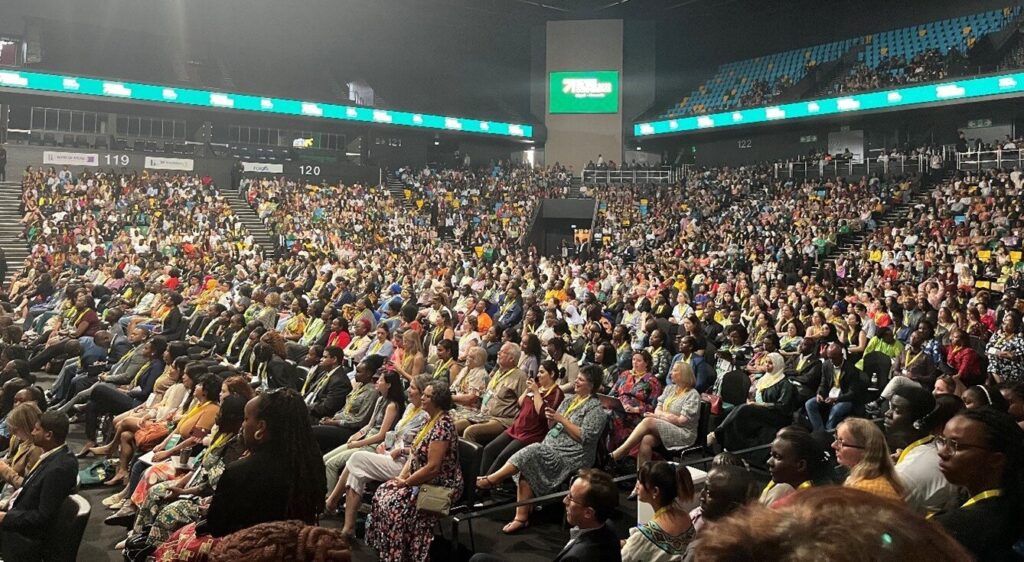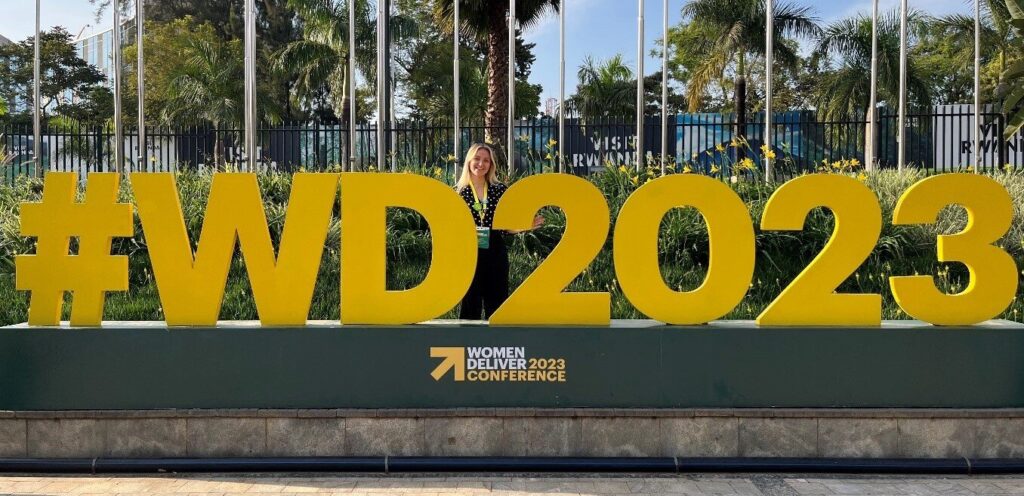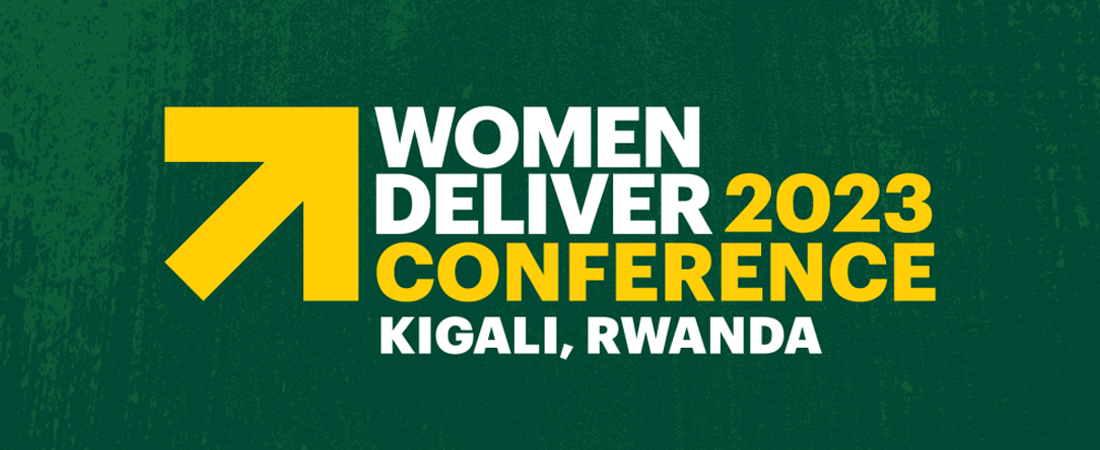In the heart of Africa, Rwanda is a country of hills, mountains, forests, lakes – and a few weeks ago, it was the host of this year’s Women Deliver Conference. Taking place in person for the first time since the COVID-19 pandemic, and for the first time ever on the African continent, I was delighted to represent Portland at this year’s gathering.
As an attendee, I joined 6,000 feminists from around the world for four jam packed days of discussion, connections, and shared learning. From climate injustice to gender-based violence, no topic was off the table, as activists, youth, researchers, civil society, policymakers, nonprofit and multilateral organisations came together to find solutions to the most pressing gender equity challenges.

I was certainly in good company. Participants were warmly welcomed by H.E. President Paul Kagame of Rwanda, and we were also joined by high level individuals such as Nobel Peace Prize laureate Malala Yousafzai, American politician Stacey Abrahams, former first lady of South Africa Graça Machel, and former Irish President Mary Robinson (who was on my flight!)
After some criticism against Women Deliver in 2020, the organisation committed for this year’s Conference to be the “most inclusive, diverse, and accessible” of its meetings to date. It was clear that they had stuck to their word, as diverse, passionate, and incredibly smart individuals from all backgrounds, were able to share their views, and calls to action for a better, more just society.
Even a few hours after attending the Conference, I was incredibly inspired and hopeful about the world’s ability to meet our goals and advance gender equity. However, there is much to be done, and the feminist movement is getting impatient. COVID-19 has reserved years of hard-fought progress, and the growing anti-rights movement and increasing climate change, are only making the challenge harder, and more urgent.
Take climate change for example. Rising temperatures, and its impact on nutrition and food insecurity will disproportionally impact women and girls – impacting their health, wellbeing and economic prosperity. Sexual and reproductive health and rights will also be impacted, as by 2050 14 million girls will lose access to contraceptives due to displacement by climate change.
With so much at stake, it was clear from the Conference that there is consensus on the need for policies to reflect realities of local communities, to have young people actively engaged in their development, and to ensure that the Global South are setting an agenda that works for them. We also need flexible funding mechanisms to support more diverse partners and implementers, and for a more unified feminist movement that will be better equipped to face and overcome criticism. From a communications perspective, gender equity must remain at the heart of the development narrative, and to deliver this, more sectors must come together.
Despite the challenges, it was evident that there is a lot of progress to celebrate, and critically, an urgent need to keep going. This year’s United Nations General Assembly represents the mid-point milestone for the world’s gender equity targets, and so we must all come together, step back, and adjust our tactics and mindsets.
When asked about her hope for the future during one of the plenaries, Planned Parenthood’s Director of Global Partnerships and Engagement, Bassey Nymabi, remarked that she wanted this to be one of the last conversations on gender equity. She said, “if we aren’t trying to work ourselves out of the job, then what are we doing?”
This sentiment resonated with me – and I am sure many others attending the Conference. Portland’s International Development team is passionate about the causes and organisations we support, working with some of the world’s leading philanthropists, corporates, and non-profit organisations to advance the Sustainable Development Goals. Even though there is still a lot of work to be done, we are honoured to have a role to play in the international development community and look forward to attending more Conferences like Women Deliver to build our insights and network with dedicated organisations across the globe.


